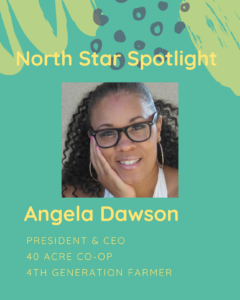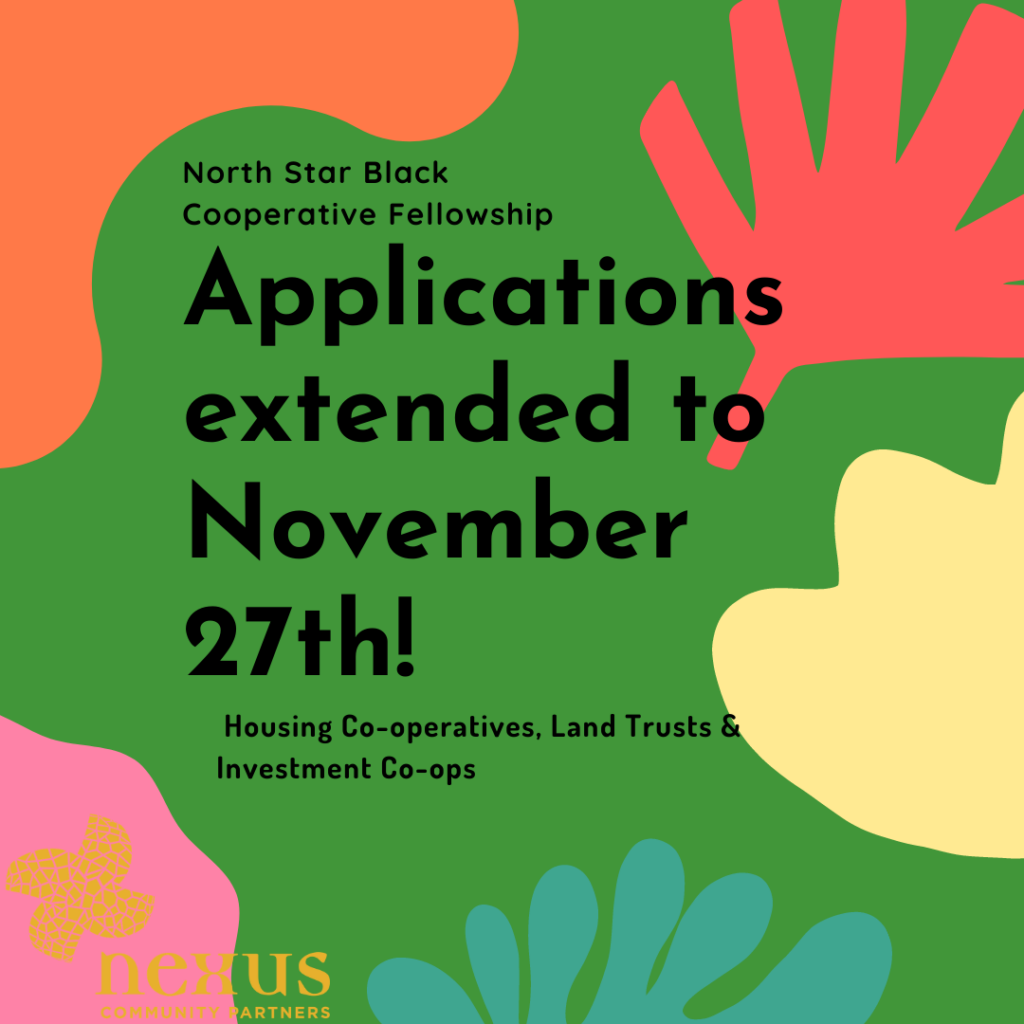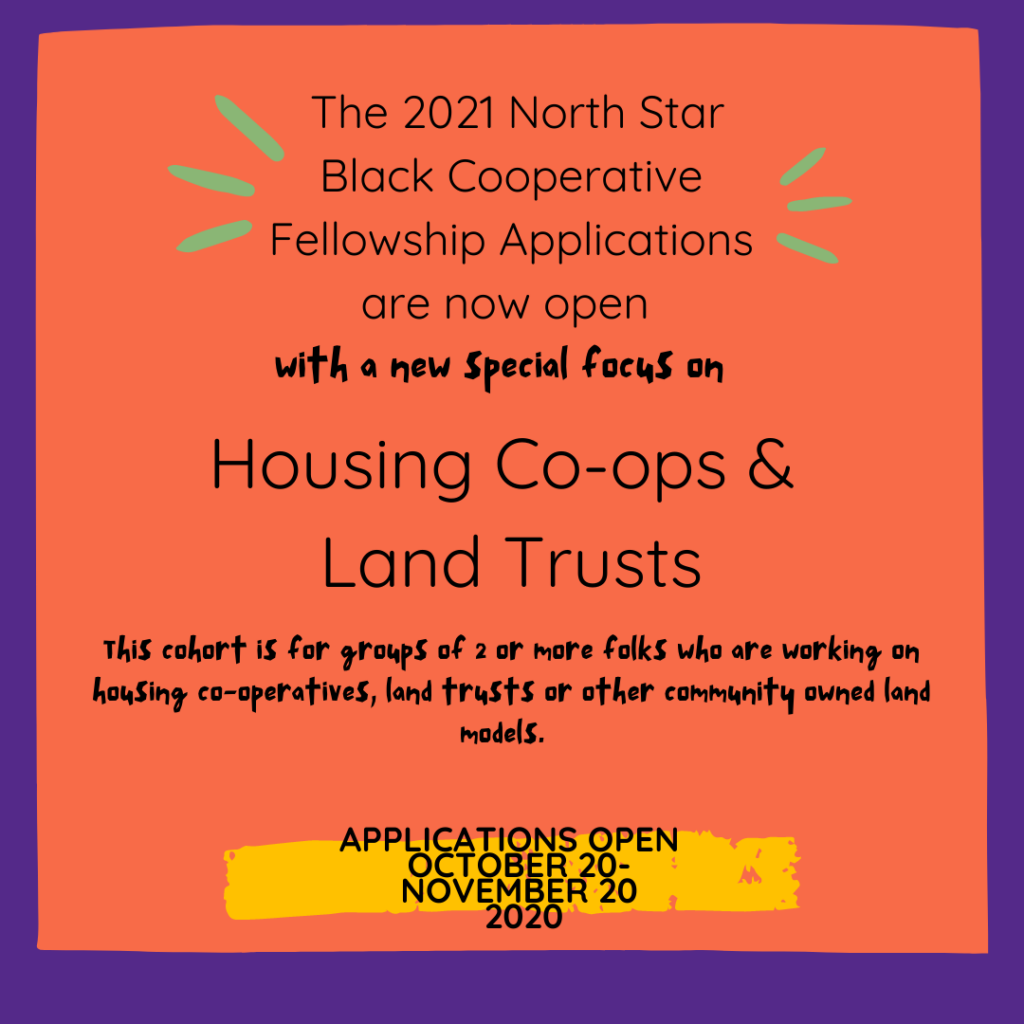 Kai Andersen is a Gemini, Minneapolis born and raised, and chock full of thought-provoking questions. He joined Nexus in July 2021 as our North Star Black Cooperative Fellowship – Research Assistant. He also is a student pursuing his Master’s of Urban and Regional Planning (MURP) at the University of Minnesota.
Kai Andersen is a Gemini, Minneapolis born and raised, and chock full of thought-provoking questions. He joined Nexus in July 2021 as our North Star Black Cooperative Fellowship – Research Assistant. He also is a student pursuing his Master’s of Urban and Regional Planning (MURP) at the University of Minnesota.
For Kai and North Star, Black cooperation is a path to self and collective healing and transformation. As a part of The North Star Team, Kai will be helping to expand and deepen their curriculum on Black cooperative thought and practice. He will be taking a deep dive into the history and cultural lineages and legacies of Black cooperation, a journey that will span cooperation and survival after Slavery, cultural ways of living and working collectively, and present-day, formally incorporated cooperatives led by Black folks. Some people and co-ops already on his list include Fannie Lou Hamer and Freedom Farmers, Cooperation Jackson, Boston Ujima, and East Bay Permanent Real Estate Cooperative.
Cooperatives are an economic development strategy that are particularly interesting to Kai, as an Urban Planning student. Historically, planners and their practices have harmed Black communities through extracting resources, redlining, disinvestment, Jim Crow laws and racist policies. As a Black, mixed race Urban Planner, Kai is reckoning with that history and learning about reparative planning practices that can help return those resources to Black communities.
For Kai, shared ownership is one of the most powerful and promising solutions out there. Unlike traditional economic development, cooperation and collective ownership are paths to big structural changes. He said, “doing work with coops is really energizing because of the self-determination that is central in it. Cooperatives allow our communities to explicitly develop what we want, and that can be reparative, transformative, and healing.”
When Black and Brown communities have ownership—of their own businesses, housing, or spaces—they are able to become powerful decision makers, protecting themselves and the interests of their neighborhoods, while also building community and intergenerational wealth. Community ownership offers an alternative to the all-too-common story: outside developers buy land and/or buildings in BIPOC neighborhoods, make decisions with little regard for the people who live there, resulting in the displacement of families, small businesses and communities. In his year with Nexus, Kai’s driven to explore “how cooperatives play a role in growing and dreaming…and in protecting our neighborhoods from displacement, gentrification, disinvestment and extraction.”
Before coming to Nexus, he worked at the Alliance for Metropolitan Stability and co-facilitated a workgroup on livability from a BIPOC, healing justice lens. Outside of work, he loves soaking in the energy of the Mississippi on river walks, enjoying herbal tea, and sharing food with people. Kai self-identifies as eclectic and renaissance-y, loving creative writing, theatre, music.
 Kai Andersen is a Gemini, Minneapolis born and raised, and chock full of thought-provoking questions. He joined Nexus in July 2021 as our North Star Black Cooperative Fellowship – Research Assistant. He also is a student pursuing his Master’s of Urban and Regional Planning (MURP) at the University of Minnesota.
Kai Andersen is a Gemini, Minneapolis born and raised, and chock full of thought-provoking questions. He joined Nexus in July 2021 as our North Star Black Cooperative Fellowship – Research Assistant. He also is a student pursuing his Master’s of Urban and Regional Planning (MURP) at the University of Minnesota. At our last session,
At our last session, 
